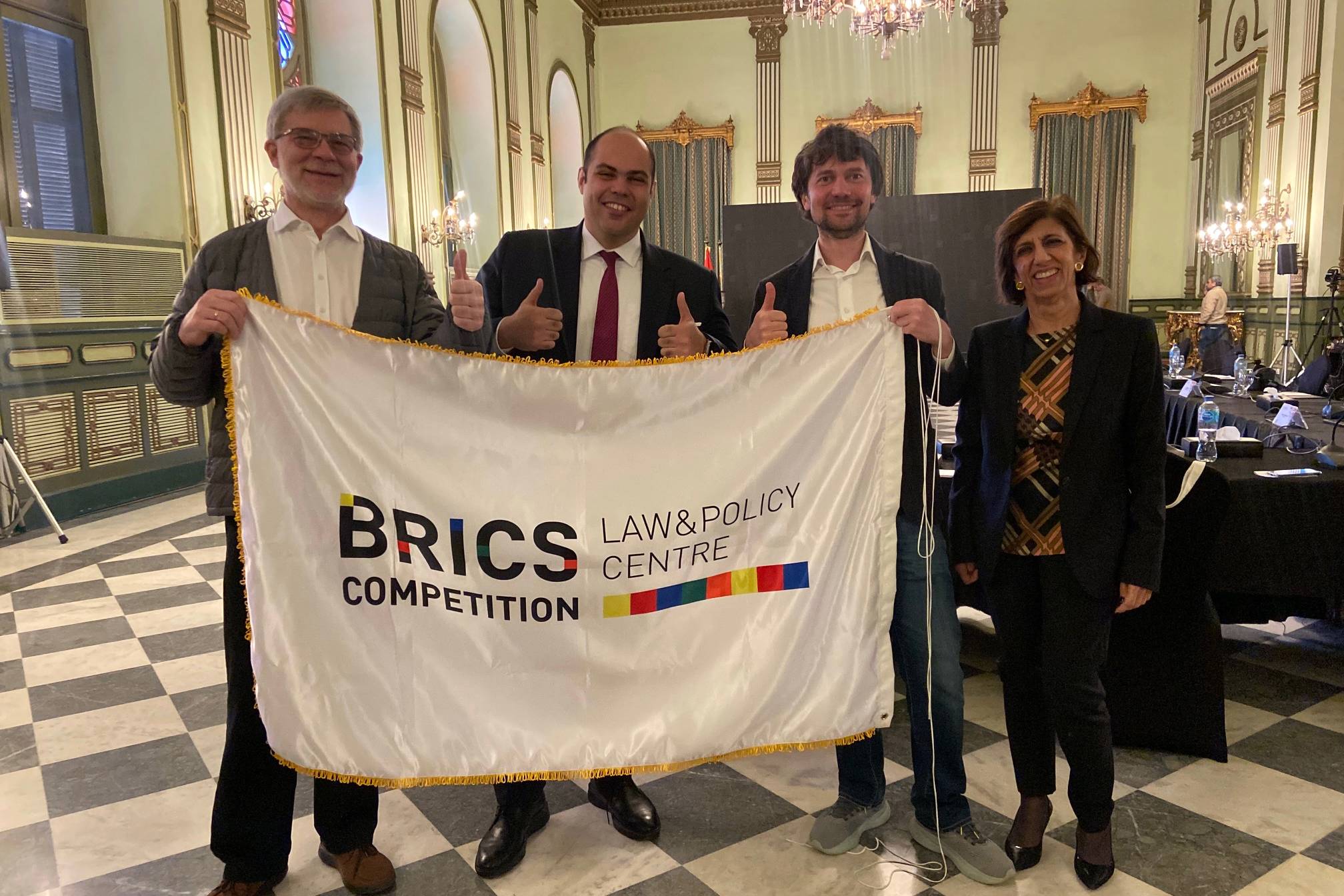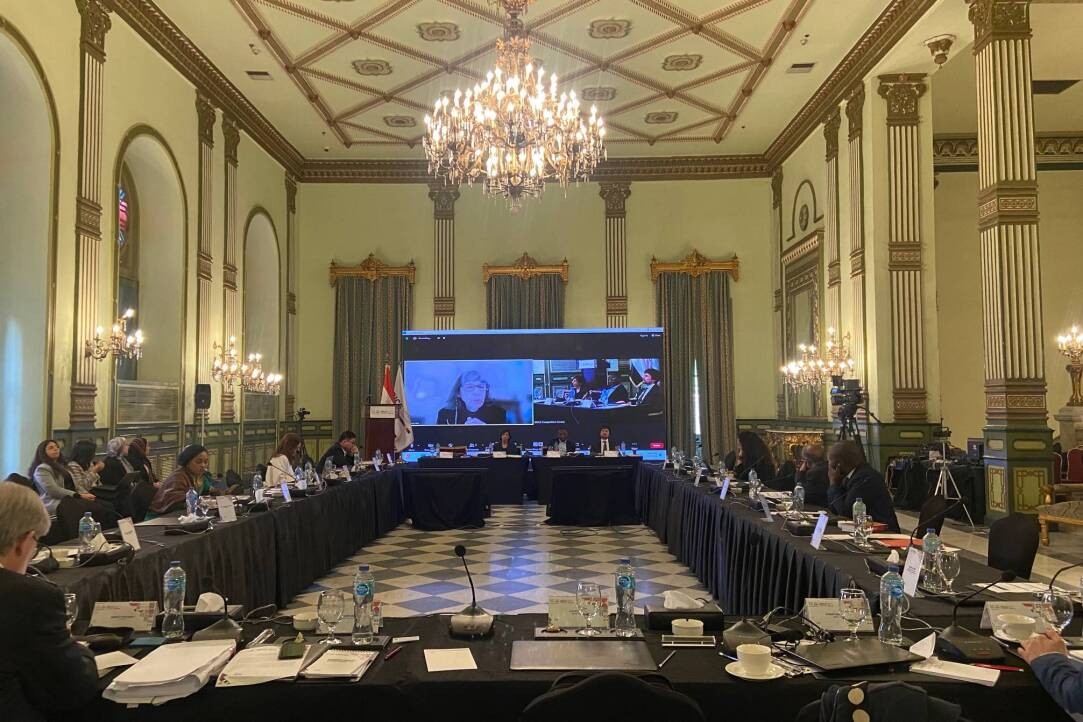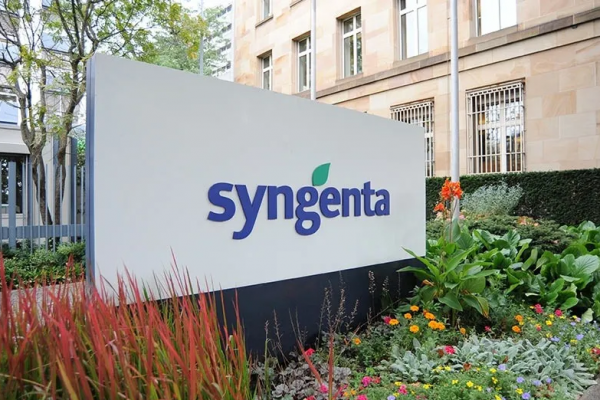More than 70-80% of the calories we consume are derived from grain products.However, the global grain market today is dominated by a small group of traders. The BRICS Competition Centre of the HSE University has proposed establishing an intergovernmental BRICS platform on fair competition to serve as a new mechanism for coordinating the efforts of antimonopoly authorities in regulating global markets. This was discussed at an international workshop in Cairo.
The International BRICS Competition Law and Policy Centre of the HSE University (BRICS Centre) launched a series of workshops on global food value chains. The inaugural workshop, centred on grain trade, was held in Egypt, organised jointly with the Egyptian Competition Authority, with support from UNCTAD (United Nations Conference on Trade and Development).
The panel discussion brought together antitrust regulators, leading researchers from BRICS countries, Europe and the US, as well as representatives of international organizations, including FAO (Food and Agriculture Organization of the United Nations) and COMESA (Common Market for Eastern and Southern Africa).
Day 2 of the workshop featured a meeting of the BRICS Working Group for the Research of Competition Issues in Food Markets, co-chaired by the FAS of Russia and the Competition Commission of South Africa. Egypt hosted the meeting as its inaugural event after joining BRICS as a new member.
Fostering fair competition in the food market is among the foremost challenges for Egypt and the wider region, according to Mahmoud Momtaz, Chairman of the Egyptian Competition Authority. The country relies on grain imports and therefore needs a competitive global market; however, a few major players currently dominate the grain trade worldwide. He believes that the mechanisms of multilateral cooperation among countries—both consumers and producers of grain—require significant institutional upgrades, while the BRICS format presents unique opportunities for implementing proactive antimonopoly policies.
"The BRICS Centre's proposals aimed at regulating global food markets ihave already influenced the work of antimonopoly agencies. The new methodological approach proposed by our colleagues, looking at food markets through the prism of global food chains - this is something that is already changing the work of competition authorities. Such inclusive formats of cooperation as the BRICS Working Group on Food Markets are of great value for the antimonopoly authorities of Egypt and other countries in the region,"
Mahmoud Momtaz emphasized.
On the sidelines of the seminar, the FAS of Russia and the Egyptian Competition Authority signed a memorandum of cooperation and understanding.
 From left to right: Andrey Tsyganov, Mahmoud Momtaz, Alexey Ivanov, Teresa Moreira.
From left to right: Andrey Tsyganov, Mahmoud Momtaz, Alexey Ivanov, Teresa Moreira.
As one of its central topics, the discussion addressed concerns over market concentration in the food industry, with a specific focus on the Bunge-Viterra deal (a merger of two major grain traders - Ed.) This merger reflects the current state of affairs in the global market and underscores existing gaps in the agricultural sector’s antimonopoly regulation.
A large portion of the global grain trade is currently controlled by four major companies—Archer Danels, Bunge, Cargills, and Louis Dreyfuss—collectively known as the ABCD companies. Dina Waked, Professor of Sciences Po (France), pointed out that the concentration of power and the financialisation of the market benefiting these companies contribute to extreme price volatility. Consequently, both ends of the food supply chain suffer disadvantages: on one side, farmers and small producers, and on the other, consumers. When prices are high, consumers bear the burden, but if antimonopoly authorities decide to lower the prices, it's the farmers who face the repercussions. She emphasised that the regulator's responsibility is to stabilise prices and mitigate volatility.
"Global mergers like Bungie - Viterra increase volatility because the intermediary gets more market power,"
explained Dina Waked.
The workshop also also featured a presentation and discussion of the book 'Global Food Value Chains and Competition Law,' published by Cambridge University Press, edited by Alexey Ivanov, Director of the BRICS Competition Law and Policy Centre, Ioannis Lianos, Professor at University College London, and Dennis Davis, Professor at University of Cape Town. An international team of researchers, led by the BRICS Centre, conducted the study for the book. The outcome of their work has been a new methodological approach to market analysis.
It is essential that antitrust regulators should use the methodology in reviewing global transactions, according to Teresa Moreira, Head of the Competition and Consumer Policies Branch, UNCTAD.
"The new methodology should be the subject of careful and thoughtful study, and UNCTAD stands ready to provide its platform for discussion and exchange of expertise,"
she suggested.
According to Alexey Ivanov, Director of the BRICS Centre, a new methodological approach is necessary for monitoring changes and detecting systemic risks in the food market.
According to Alexey Ivanov, Director of the BRICS Competition Centre, a new methodological approach is necessary for monitoring changes and detecting systemic risks in the food market.
"Competition authorities must conduct a comprehensive analysis of the value chain, considering all its components—from the situation of farmers to the impact on consumers—and evaluate its performance holistically. Instead, the authorities often focus on a single element while neglecting potential systemic disruptions across the entire chain,"
he explained.
The proposed methodology could help identify the entire range of connections linking players in global food markets, added Ioannis Lianos, Professor at University College London.
"If we move away from classical theory of price to complex systems analysis, we can better understand and trace the competitive interactions among companies in the global value chain,"
he explained.
Professor Eleanor Fox of New York University highlighted the urgency of addressing the challenge of antimonopoly regulation in food value chains.
Eleanor M. Fox, Professor Emerita, New York University School of Law, highlighted the urgency of addressing the challenge of antimonopoly regulation in food value chains.
"We need to act, we need to do something right now! It is necessary to shift the focus of the international discussion to the problems of food markets, much like it has been done with the digital sphere. The critical aspects to address include combating cross-border cartels, overcoming obstacles to sharing information among antimonopoly authorities, and scrutinising global transactions. Multinational companies operate on a global scale, unlike antitrust regulators. We need to go one step higher and join forces to collectively address this global power,"
she argued.
One of the key conclusions of the workshop was the the imperative need to consolidate the efforts of the antimonopoly community. To make a significant impact on a global scale, a coordinated approach to addressing the concerns in the grain sector is essential.
"The BRICS platform, now uniting a substantial portion of developing countries, offers precisely such an opportunity, and I believe that the BRICS Centre should play a pivotal role in organising and coordinating these efforts,"
said Hardin Ratshisusu, Deputy Head of the Competition Commission of South Africa.

From left to right: Mahmoud Momtaz, Hardin Ratshisusu, Uzhval Kumar.
However, the consolidation of efforts among antimonopoly authorities can only be achieved through close collaboration with the expert community. Food security is not merely a matter of competition, but a multidimensional and complex issue. For efficient functioning, antimonopoly authorities require the assistance of researchers, as regulators themselves cannot and will never transform into research centres due to time and resource constraints, reminded Tembinkosi Bonakele, Professor, Wits University, Ex-Commissioner of the Competition Commission of South Africa.
Alexey Ivanov remarked that numerous research groups and institutes are currently working to fill the orders from international organisations associated with the West. As part of the BRICS Centre’s work, it is possible to undertake research on competition law and policy with a specific focus on addressing the needs of the BRICS member countries. Collaborative efforts of regulators and joint research initiatives can help overcome the existing limitations associated with specific local characteristics. An example of successful joint efforts has been the collaboration of BRICS countries’ authorities within the framework of the Working Group for Food Markets regarding the Bayer-Monsanto deal.
In conclusion, Andrey Tsyganov, Deputy Head of the Federal Antimonopoly Service of Russia, called on his colleagues to further develop the BRICS institutional architecture pertaining to the antimonopoly track. He highlighted the urgency of establishing an intergovernmental BRICS platform on fair competition, drawing upon the expertise of the BRICS Centre and the BRICS working groups for food and various other markets. This platform could serve as a new mechanism for coordinating the efforts of antimonopoly authorities aimed at regulating global markets.
Source: HSE University




